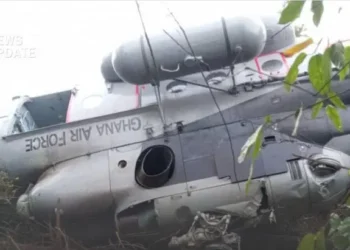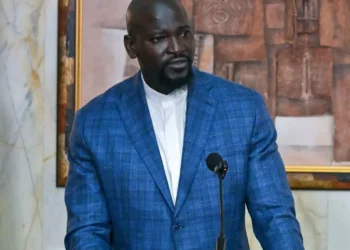The Economic Community of West African States (ECOWAS), is set to reassess its election monitoring mechanism to strengthen the human and financial resources to achieve the objectives defined in the ECOWAS protocol on democracy and good governance.
A note submitted to the ECOWAS parliament by the ECOWAS election observer mission indicated that the sub-region is faced with recurring challenges to the electoral process in the Member States.
According to the briefing notes submitted to the ECOWAS Parliament, the observers noted the dysfunctions in the organization of the elections that were conducted in 2020 within the member-states but did not question the credibility of the results.
In some countries, particularly in Côte d’Ivoire and Guinea, it was noted that the elections were organized in a context of a political crisis that affected the conduct of the ballot and the post-election climate.
“In the light of the aforementioned, it would be necessary for the Parliament to initiate and recommend post-election assessment missions to the Member States where elections were held in 2020 to gather useful information on the electoral processes”.
The implementation of these recommendations, according to the ECOWAS Parliament, will make it possible to offer all stakeholders a harmonized framework for the preparation, organization, and monitoring of elections and thus reduce election-related crises in the sub-region.
In 2020, ECOWAS observes elections in six Member States. The observer mission of the ECOWAS participated in the observation of presidential elections in Togo (22 February), Guinea (October 18), Côte d’Ivoire (October 31), Burkina Faso (November 22), Ghana (December 7), and Niger (December 27 for the 1st round).
Members of Parliament and parliamentary officials took part in the missions to these Member States.
Article 2 (3) of the ECOWAS protocol on democracy and good governance stated that “the bodies responsible for organizing the elections shall be independent or neutral and shall have the confidence of all the political actors. Where necessary, appropriate national consultations shall be organized to determine the nature and the structure of the bodies”.
Per the protocols on democracy, the voters’ lists are expected to be prepared transparently and reliably, with the collaboration of the political parties and voters who may have access to them whenever the need arises.
Likewise, the preparation and conduct of elections and the announcement of results are to be done transparently.
The ECOWAS protocols further called for adequate arrangements to be made to hear and dispose of all petitions relating to the conduct of elections and announcement of results.
Ghana can be credited for this, as the country always resorts to the court to address all election-related misunderstandings.
Currently, the opposition NDC has challenged the credibility of the 2020 elections by filing a petition at the supreme court against the EC and the President-elect, Nana Addo-Dankwa Akuffo-Addo in what they described as ‘fraudulent elections’.
Furthermore, the ECOWAS protocol on democracy and good governance made provision for the inclusion of women in the governance systems in its member-states.
“Member States shall take all appropriate measures to ensure that women have equal rights with men to vote and be voted for in elections, to participate in the formulation of government policies and the implementation thereof, and to hold public offices and perform public functions at all levels of governance”.



















